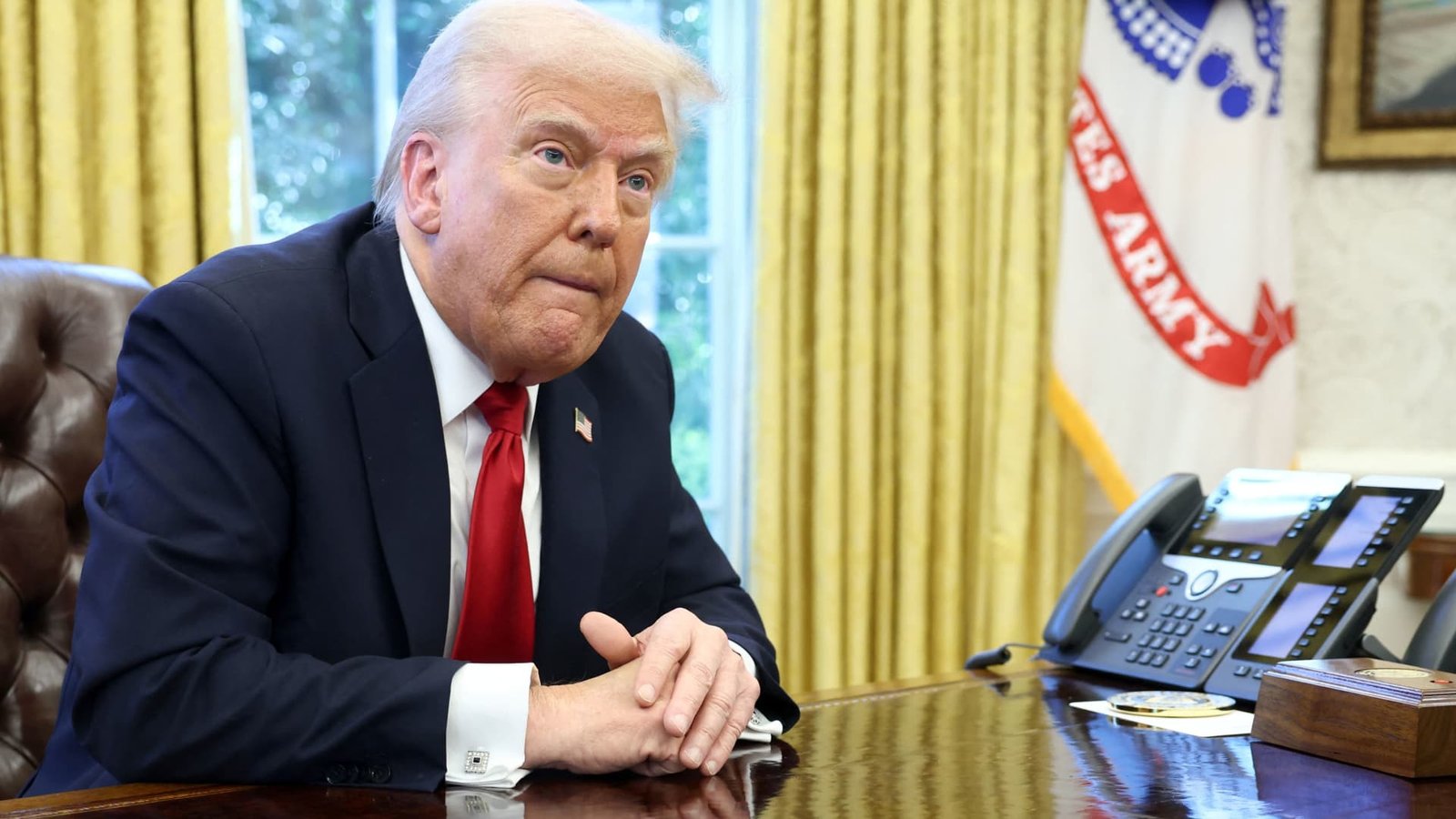U.S. President Donald Trump speaks to the media in the Oval Office at the White House in Washington, D.C., U.S., March 26, 2025.
Evelyn Hockstein | Reuters
Another day, another tariff development from the Trump administration.
In his latest move in the global trade war, U.S. President Donald Trump has announced a 25% tariff on “all cars not made in the U.S.,” rattling auto stocks. This would be in addition to any existing duties.
The announcement comes ahead of Trump’s “liberation day” on April 2, which was originally envisioned as the day the U.S. would slap reciprocal tariffs, while also imposing duties in response to other disfavored trade policies, such as the use of value-added taxes.
But, Trump and his officials have recently suggested that the “liberation day” tariffs could end up being softer than expected.
While this could soothe investor turmoil, it might in fact increase uncertainty, due to the “on again, off again” nature of these announcements, which leave business leaders unable to plan for the future and undermine investor confidence in U.S. policy stability.
To paraphrase Prussian general Carl von Clausewitz, Trump might say that everything in this trade war seems simple, but even the simplest things are difficult.
— Lim Hui Jie
What you need to know today
25% tariffs on all cars ‘not made in the United States’ …
U.S. President Donald Trump on Wednesday said he would impose 25% tariffs on “all cars that are not made in the United States,” and added that there is “absolutely no tariffs” for cars that are built in the United States. White House aide Will Scharf said the new tariffs apply to “foreign-made cars and light trucks.”
… but April tariffs may be more ‘lenient’
In another tariff development, Trump said that tariffs will likely be more “lenient than reciprocal,” as the April 2 tariff deadline looms for a number of levies to go into effect. The White House later clarified that this means that the administration will no longer take into account non-tariff barriers that countries raise against the United States — such as value-added tax to determine the reciprocal tariff rate.
Full texts from Signal chat group published
The Atlantic on Wednesday published the full text thread from the Trump administration’s Signal group that accidentally included the editor in chief of The Atlantic in discussions of pending U.S. military strikes. Jeffrey Goldberg had initally withheld some of the contents of the group, but the outlet published the full texts after Trump and others in the group chat declared Tuesday that none of the messages were classified, and said that they did not contain “war plans,” as The Atlantic’s initial headline stated.
OpenAI expects revenue tripling to $12.7 billion
Artificial intelligence firm OpenAI expects revenue will triple to $12.7 billion in 2025, CNBC has confirmed. This comes as OpenAI announced some key changes in the C-suite earlier this week. CEO Sam Altman will shift his focus away from day-to-day operations and focus more on research and product, the company said, while operating chief Brad Lightcap’s role will expand to oversee “business and day-to-day operations.”
Tariffs continue to pressure stocks
All three major U.S. stock indexes dipped on Wednesday, led by tech names. The tech-heavy Nasdaq Composite shed 2.04%, with names like Meta, Amazon and Alphabet sustaining losses of 2%-5%. Chip giant Nvidia dropped nearly 6%. The S&P 500 lost 1.12%, while the Dow Jones Industrial Average fell 132.71 points, or 0.31%.
[PRO] Gold seen to hit $3,500 per ounce by 2027
Gold could hit $3,500 per ounce within the next two years, with central banks and China’s insurance industry driving demand, according to Bank of America. The yellow metal has gained more than 15% this year to break $3,000 per ounce for the first time as geopolitical tensions and Trump’s trade war pushes some investors into safe haven assets.
And finally…
China is focusing on large language models (LLMs) in the artificial intelligence space.
Blackdovfx | Istock | Getty Images
China’s artificial intelligence boom might help mitigate some tariff pain
With a surge in AI companies in China, analysts expect Chinese businesses to stand a better chance of weathering any tariff shocks from the U.S., as AI tools could cut costs for companies and offset some of the impact of an economic slowdown.
Nearly every day in the last two weeks, a Chinese firm has announced a new AI product — or how they’re making money with the tech, which has lifted expectations for Chinese corporate earnings growth in the year ahead.
» Read more













Leave a Reply